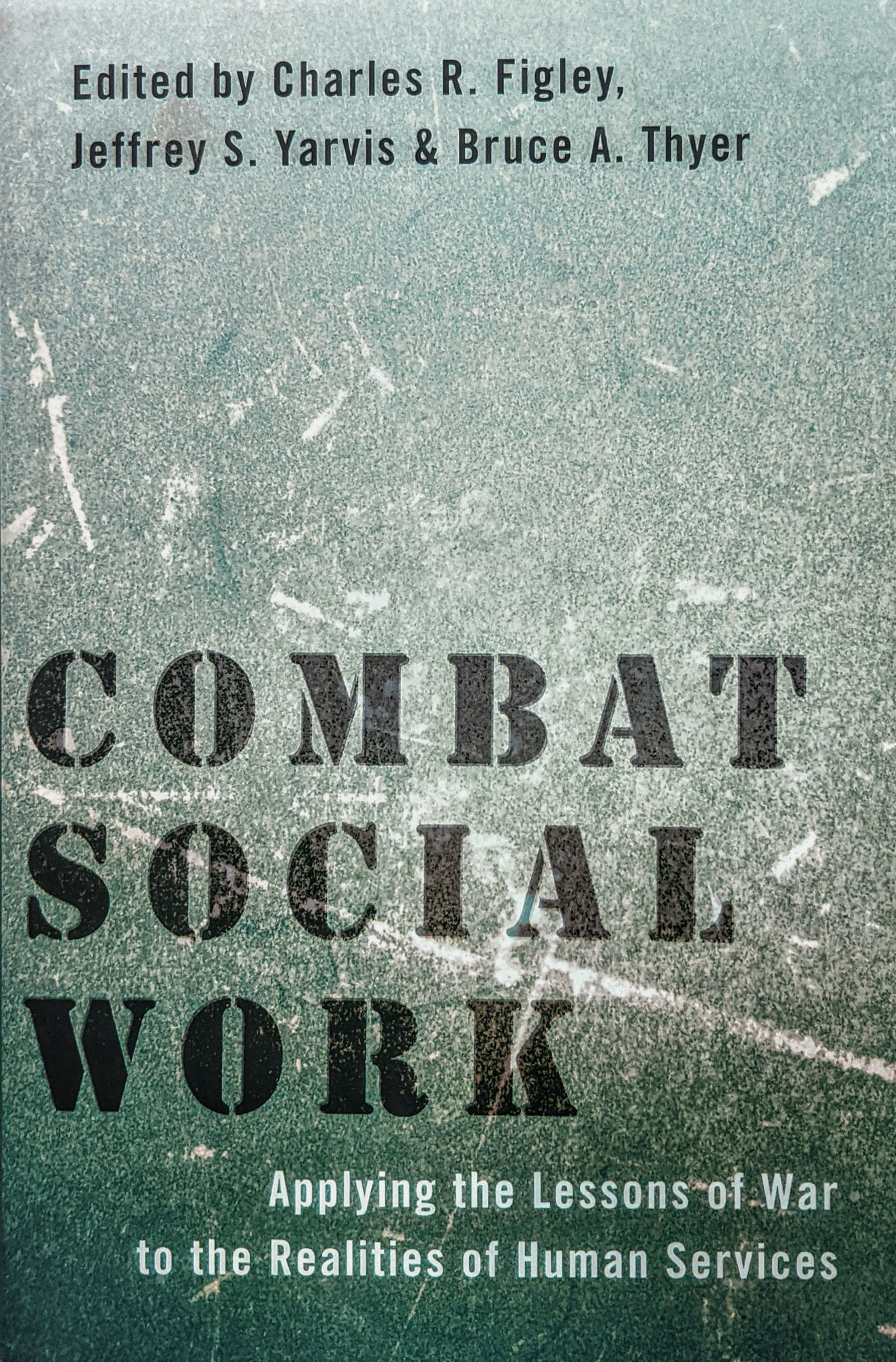
One thing people often don't think about concerning the military is that the military employs mental health professionals to treat soldiers, and those mental health professionals go where the soldiers go - including combat zones. The comprehensive new book Combat Social Work, edited by Figley, Yarvis, and Thyer (2020), presents the VARIOUS experienceS of social workers in combat situations.
Combat Social Work starts with a brief introduction of what combat social work consists of, and an overview of life during, and after, social work tours in combat zones. Then, in individual essays, 11 different combat social workers recount their time before the service, in the service, and post-service. In "Dark Mornings to New Beginnings," the first guest author, Shad Meshad, tells about serving in the military prison Fort Leavenworth when he requested a transfer to Vietnam. He chronicles his time overseas, and his role in counseling veterans when he returned home. Post-service, he went on to set up veteran therapy initiatives in Los Angeles, to become a top manager of the Vet Center Project, and to found the National Veterans Foundation.
In "Combat Social Work in Vietnam, 1968-1969," Raymond Mansour Scurfield describes his journey to earning his MSW, inspired by his ongoing fight against discrimination. Drafted into the military during the Vietnam War, he witnessed pervasive culturally derogatory attitudes and learned that soldiers were often regarded as disciplinary problems when they in fact needed mental health treatment. He discovered how quickly civilians put the soldiers deployed into warzones to the back of their minds, exacerbating veterans' feelings of isolation from civilian society. And he learned, from a brave disabled veteran, the power of positive thinking. In a moving and profound essay, Scurfield details his time in Vietnam, his connection with the Vietnamese people while there, the lessons he learned before, during, and after his deployment - and why we as a society owe so much to our veterans.
Vaughn DeCoster writes about his journey into military social work service after 9/11 in "The Journey of Serving as an Army Reserve Social Worker." He worked overseas in combat stress control and even spent time in combat zones conducting individual counseling sessions. This work took unexpected turns - for instance, he counseled deployed couples. His essay covers his collaboration with chaplains and other helping professionals, issues with caregiver burnout, and a multitude of aspects of life as a social worker in Iraq during the war. When he returned home he found himself in need of adjusting to post-war society while continuously aware of the possibility of redeployment. He describes how his combat social work journey changed him, and the toll trauma practice takes on social workers.
In "War Stories of a Brigade Behavioral Health Officer," Debra Stone details her enlistment in the Army at 42. Initially enlisting to pay off student loan debt, she soon found herself deployed to Afghanistan with a Combat and Operational Stress Control Detachment. Her essay covers the lessons she learned and the sexism she encountered on her deployments, and goes into great detail about life as an Army social worker during and after deployment. She writes with the goal of helping combat social workers better care for patients while sticking up for themselves and their positions.
All in all, the book covers male and female combat social workers, from the Army, Navy, and Air Force. The various essayists detail the positives and negatives of the military environment and bureaucracy, and the stresses and accomplishments they experienced while caring for soldiers in a war zone. They discuss the varying roles military social workers perform and describe the intricacies of navigating the military infrastructure. They provide self-help tips, valuable pieces of advice, and they share their physical and emotional journeys through their military careers.
If you are a servicemember considering a social work career, a social worker contemplating joining the military, or if you are a mental health provider for veterans who wishes to understand more about how military service can affect mental health, this book is a valuable, interesting, and inspiring read.
Combat Social Work, edited by Charles R. Figley, Jeffrey S. Yarvis, & Bruce A. Thyer. 2020. Oxford University Press.

